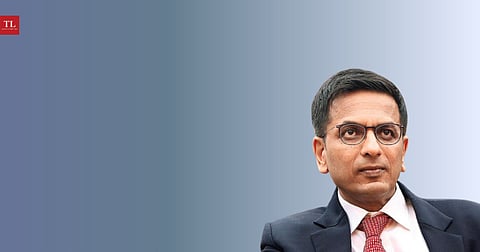

ON the last working day of this calendar year, the court of the Chief Justice of India ('CJI') reminded everyone of the role of the Supreme Court in attending to grievances pertaining to the personal liberty of citizens. It added that the history of the Supreme Court indicates that it is in the seemingly small and routine matters involving grievances of citizens that issues of moment, both in jurisprudential and constitutional terms, emerge.
Writing a judgment for the bench, which also comprised Justice P.S. Narishma, CJI Dr. D.Y. Chandrachud said, "The right to personal liberty is a precious and inalienable right recognised by the Constitution. In attending to such grievances, the Supreme Court performs a plain constitutional duty, obligation, and function; no more and no less".
The bench added, "The intervention by this Court to protect the liberty of citizens is hence founded on sound constitutional principles embodied in Part III of the Constitution. The Court is entrusted with judicial powers under Article 32 and Article 136 of the Constitution of India"
Incidentally, the observations were made by the Supreme Court a day after Union Law Minister Kiren Rijiju said that a Constitutional court like the Supreme Court should not hear bail applications and frivolous public interest litigation.
On Friday, the bench came across a case where a man was imprisoned for electricity theft and ordered to undergo consecutive sentences. He was, thus, to undergo a total of 18 years in jail in nine separate cases of electricity theft.
A perturbed bench observed, "The facts of the present case provide another instance, a glaring one at that, indicating a justification for this Court to exercise its jurisdiction as a protector of the fundamental right to life and personal liberty inhering in every citizen."
The Allahabad High Court had come to the conclusion that in view of the provisions of Section 427 of the Code of Criminal Procedure, 1973 ('CrPC'), each subsequent term of conviction has to commence at the expiration of the imprisonment currently being undergone by the appellant-convict. It would thus follow that he would have to undergo a total term of imprisonment of 18 years in respect of the nine convictions for offences under Section 136 of the Electricity Act and cognate provisions.
The bench noted that the trial court issued no specific direction within the ambit of Section 427(1) of the CrPC so as to allow the subsequent sentences to run concurrently. All the convictions took place on the same day.
The appellant also preferred a petition under Article 226 before the Allahabad high court but to no avail. Disapproving the high court's decision, the division bench led by CJI Dr. Chandrachud observed that "the High Court ought to have noticed the serious miscarriage of justice which would occur consequent upon the trial court not having exercised specifically its discretion within the ambit of Section 427(1)".
"When the appellant moved the High Court, he was aggrieved by the conduct of the jail authorities in construing the direction of the trial court to mean that each of the sentences would run consecutively at the end of the term of previous sentence and conviction. The High Court ought to have intervened in the exercise of its jurisdiction by setting right the miscarriage of justice which would occur in the above manner, leaving the appellant to remain incarcerated for a period of 18 years in respect of his conviction and sentence in the nine sessions trials for offences essentially under the Electricity Act", the bench said.
The bench directed that the sentences which had been imposed on the appellant in the nine sessions trials would run concurrently.
Click here to view the full judgment of the Supreme Court.